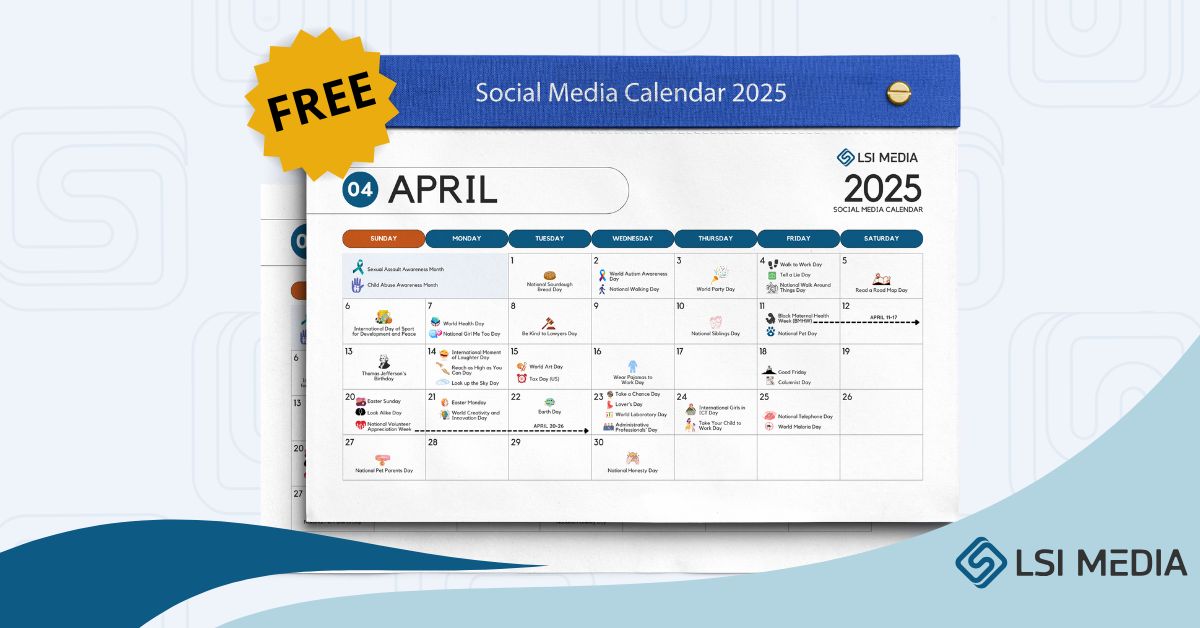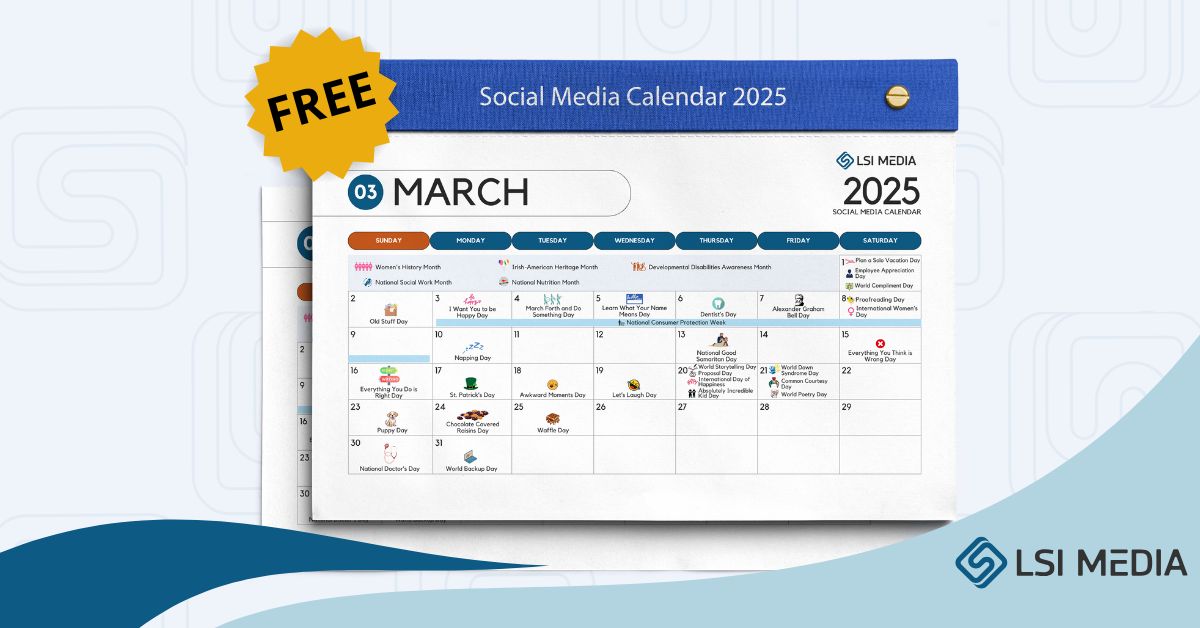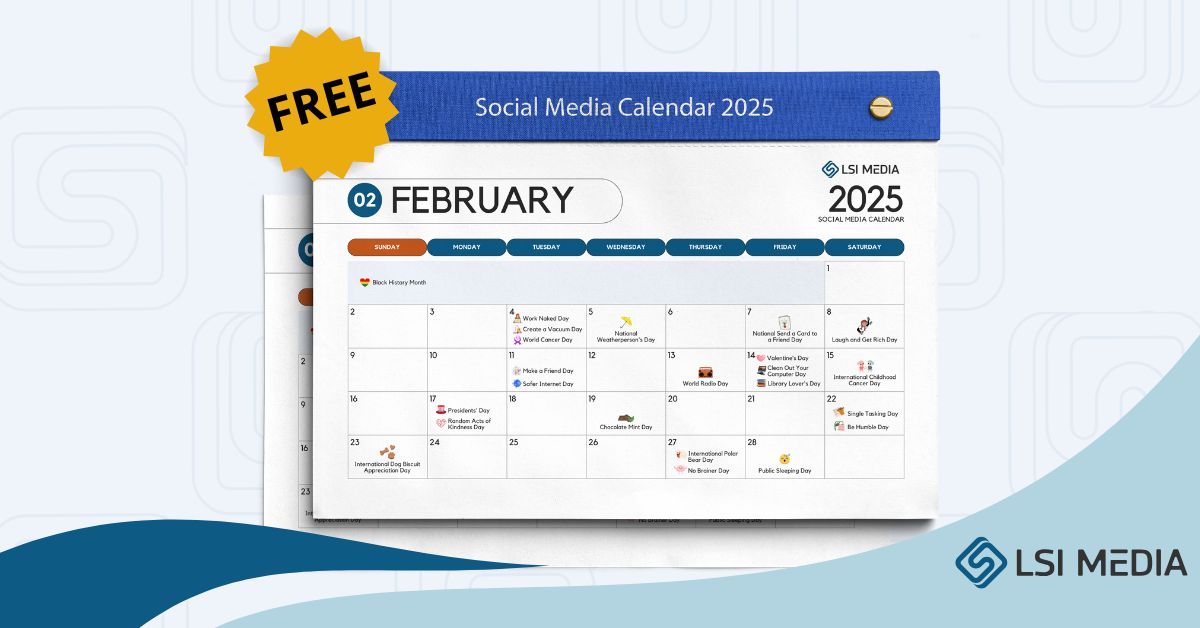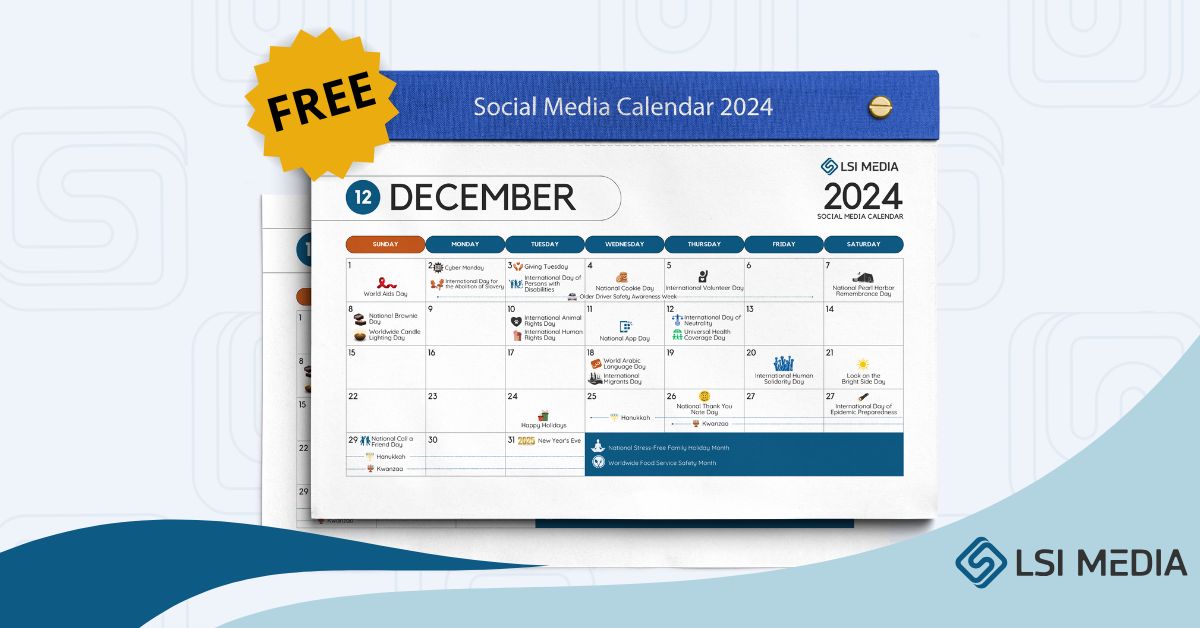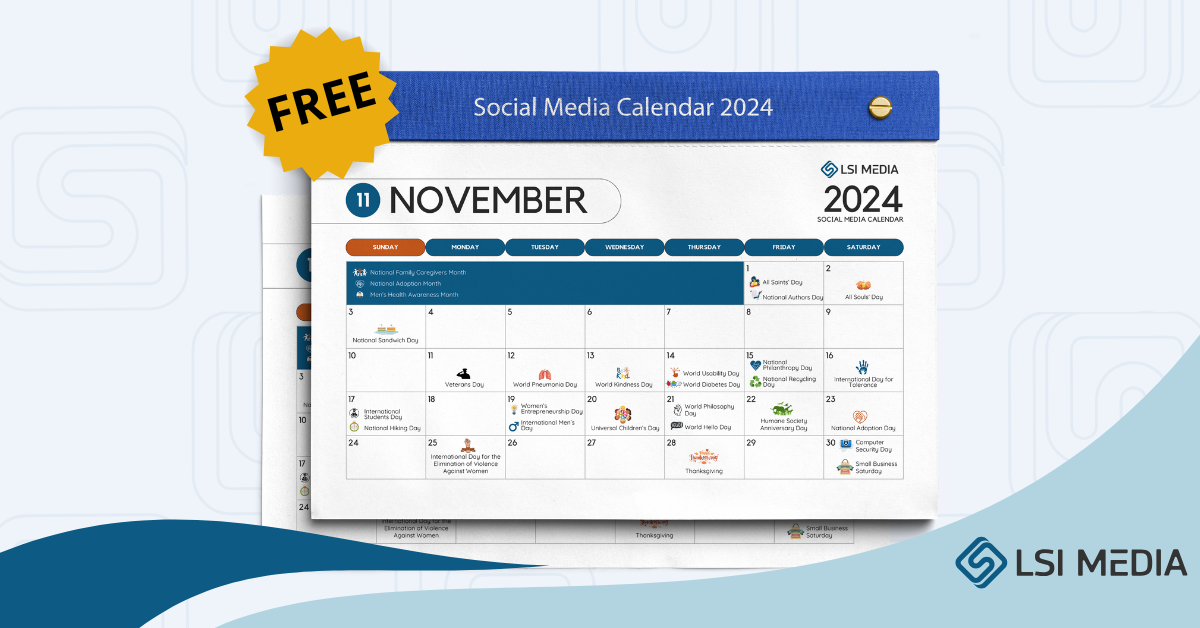[ez-toc]
What’s new with social media management?
There is no way for marketers to know what will happen in the future, but they can keep their finger on the pulse of new trends.
In a recent study by HubSpot with more than 1,000 global marketers from B2B and C2C brands and a few experts, the research came up with a 2022 marketing trends guide that covers everything from privacy and AI to social media and SEO.
According to the guide, 79 percent of Americans have some kind of social media account, and there are 3.7 billion people on social media around the world. This makes social media a part of people’s lives and an important part of any marketing strategy.
The most effective social media management tools
If you’re eager about starting started with social media, social media management tools may help you make the most of your experience (and increase your productivity) even more productive. These commercial and free apps can assist you in scheduling material, responding to comments, and a variety of other tasks.
Some of the most effective social media management tools are as follows:
- Buffer: Buffer is a paid application that may assist you in managing social media accounts, creating a posting schedule, scheduling social media articles, and more. Additionally, it is accessible as a smartphone application, which makes social media administration a breeze.
- Hootsuite: Hootsuite, another premium social media management tool, allows you to manage all of your social media platforms, respond to user inquiries and comments across all channels, and track the effectiveness of your social media strategy through analytical reporting.
- CoSchedule: CoSchedule is a premium program that does more than just manage your social media accounts. It’s possible to schedule social network updates as well as create content calendars and publish blog pieces, among other things.
What does social media management include?
It’s understandable that people want to know what social media management is all about because it’s so broad. You want to know more about where you should spend your time and how much time social media will take from you.
In general, social media management is concerned with the following aspects:
1. Performing an audit of your current social media strategy
The idea of using social media to sell and advertise your business is something you might want to think about. Set a few hours aside for a review of your current strategic plan, and then you’ll be ready to move on. Further, when you use a social media audit, you can figure out which parts of your social media efforts are working and which aren’t, and how to improve them.
The following are typical processes taken during a social media audit:
- Check your social media objectives
- Make sure your branding is the same on all of your social media accounts
- Keep track of your social media stats (like how many followers you have, how many people are interested in you, and so on)
- Check your social media statistics to see if there are any patterns, such as what kind of content your followers like.
- Monitor your competitors’ online social media presence.
On social media, you should look into your competitor’s online presence.
Your social media audit will give you quick information about how you market your business on social media. In addition, it will help you plan your campaigns so that you can get the results your company wants from social media, whether that is more followers or happier customers.
2. Identifying and researching your target audience
It’s very important to know who your target audience is so that you can run a good social media campaign. If your agency doesn’t know who its target audience is, it might be hard to come up with a social media plan. To figure out where online, you need to know who your target market is. The fact that you want to get the most out of your money spent on social media management is very important.
By focusing your marketing efforts on the platform that your audience prefers, you can get the most out of your money (ROI). As an example, think about how dentists use social media to market their businesses. While one doctor is good at treating kids, another is good at treating people with implants.
Their social media management services, which include audience research, make sure that their marketing and advertising money is spent on content and ads that are aimed at the right people, not just anyone who needs dental treatment. As soon as you pay for social media management services, you can expect your account manager to ask about your target audience. When you call an agency to talk about their services, they might ask about your target audience, which is a nice touch.
3. Choosing the social media channels that you will use
After that, you’ll need to figure out which social networks to use. In social media management for businesses, time is one of the most important things. That’s why it’s important to spend your time on the networks that are most important to your target audience.
Make sure that you have a Facebook and Twitter account, as well as a LinkedIn account. You should not spend all of your time on both. Instead, you should rank social media networks based on how often your target audience uses them.
When you look at demographic data, you can figure out which social media networks are most important to your target market. When you look at the results of a social media audit, you can also look at your engagement rates to figure out which networks were the best.
Keep an eye on what your competitors are up to as well. If you use social media management services, don’t worry about it. Your account manager will help you choose a platform based on their research into your industry, target audience, and goals.
4. Developing your social media marketing plan
Before your account manager or other members of your internal team can start your social media campaign, they need to come up with a plan for how to do so. It’s likely that they’ll spend most of their time working on a strategy for each social media site because they have different roles and applications.
In addition to taking your target audience into account, they will also look at the following:
- Your objectives: During social media marketing, what does your company want to do for your business? Do you want to make people more aware of your brand, or do you want to make your customers more loyal to your company? Or do you have another goal in mind?
- Your field of experience: What are the questions that people in your field are asking? Can your group fill in any gaps in content, such as with blog posts or guidelines that can then be shared on social media? Alternatively, are there people in your field who you can talk to on a variety of platforms?
- Your brand: How does your company sound? Do you follow a set of rules or do you follow a set of rules when you talk to customers in public? Instead, how does your company’s branding affect the colors and media it chooses for its business?
5. Creating your social network profiles
When you set up or update your social media profiles, it is important to make sure that they are in line with your brand. There are many different types of social media management services, and they can include social media design as well as other types of services. This service focuses on taking professional photos that show off your business and make a good first impression on people who visit your website.
Most of the time, the design of your social media account will be based on the static photos you use:
- Your Twitter profile picture and background are what people see when they look at your profile on the site
- Your Facebook header: There are a lot of examples of visual branding on Facebook, like your header, icon, and profile picture.
- Choose an Instagram profile photo
The social media professional can start working on your marketing goals after your social media accounts have been set up and you’ve given them the go-ahead. For example, they could work on improving post-interaction or getting more people to buy your products.
6. Creating your social media advertisements
Social media advertisements can help your social media manager figure out how to market your company on Facebook and other social media. Your company’s goals and service plan could help your manager figure out how to market your company on social media. Further, if you want to get more real followers and get more people to interact with your social media ads, you need to use them.
Platforms, from Snapchat to Facebook, have different ways of advertising. These range through a lot of different types of ads with a variety of corresponding purposes and goals. For example, you can use Facebook to make ads for a wide range of things, like getting more leads, getting people to visit your store, and more.
These are some of the other ad elements that your social media manager will think about:
- Call To Action ( CTA)
- Content
- Cost-Per-Click (CPC) advertising
With these ad elements, it’s quite important to be accurate and purposeful, especially in calculating how well your marketing strategy is going to work. A call-to-action (CTA) can be included in an advertisement, but if it isn’t targeted to the right people, it won’t work. Before you start an advertising campaign, you should have a chance to check and approve your ads before getting published.
7. Creating a content calendar for your social media accounts
Most social media management services give you more than just a content calendar for each of your social media accounts. With your social media calendar – schedule, this calendar is meant to serve as a guide for you and your professional social media management team. You’ll have an easier time seeing all of your scheduled social media posts that have been planned for the next month, and the succeeding months based from your content calendar.
Some of these postings might include company news and holiday greetings, important information from your blog, website, and other sources. Further, it’s likely that your social media manager will ask you to look over and approve all of the material before it is put on your social media pages. With this, only your approved content will be published to make sure your posts go through your screening with a personal touch.
8. Developing content that is customized to a certain platform
A social media professional does more than just set up a content calendar for your business. They also write the content that will be in the content calendar. In some cases, they may be in charge of everything that goes into making content, from coming up with a topic, to writing the material, and finding the best way to distribute it.
People who work in social media, on the other hand, often work with graphic designers and copywriters to make the best material possible. The end result is a piece of content that your target market likes, and that also meets the goals of your organization. In either case, your social media manager will make sure they have the right link and description for your social media pages.
9. Responding to the people that follow you on social media
In many social media management agencies, the job of communicating with your followers and commenters every day is part of their service. If you run a business, this service is very important to you because it has a big impact on your brand recognition and your brand loyalty in the long run. In this service, your social media manager will talk to your followers in a way that is in line with your brand and company values.
They’ll also respond to critics who have negative things to say about the service, like people who say they had a bad experience with it. The way your business connects with its target market on social media shows them that you care about them. Often, this will make your business stand out from the rest and help it grow. It could also be used as a selling point for customers because more than 65% of people use social media for customer service.
10. Increasing your social media reach
There are many ways your social media expert will try to grow your followers and profile, but they won’t all work at the same time. As part of your social media management service, your provider may reach out to other specialists in your industry and other trusted groups. These professionals may then write about your company, which could allow you to connect with their fans. You will get more audiences to know about your business, as well as the chance to get more followers and clients.
As an example, if you sell kitchen cabinets, an influencer might say your product could be a good buy for someone who has just done a lot of work on their kitchen. In return, they’ll write a status update on Facebook or Twitter about the experience, which you can then post on your own social media accounts. It’s a chance for you and another group to get attention and publicity.
11. Maintaining an eye on your social media performance
Monitoring how well your social media efforts are working is an important part of social media management. Social media specialists will keep an eye on how well your ads and creative materials are working for you. They’ll also tell you what they know.
So, when you hire an agency to manage your social media accounts or any other digital marketing service, it is important that they not only keep an eye on the performance of your social media accounts but also respond when that performance starts to go down. Your ideal partner agency would also come up with a plan for fixing low performance, not a group that just takes responsibility for it. Last Note In the future, long-term social media posts could beat short-term content.
Permanent social media content, like standard posts, videos, and live events that stay on a platform’s feed and can be seen again days later, might work better than short-lived content like Instagram Stories and Snapchat. Recent studies show that 44 percent of global marketers plan to spend more money on permanent social media content.
From the survey, eight percent say it has the best ROI of any marketing strategy they use. 25 percent of the survey respondents, however, said that ephemeral content was the trend that didn’t work the best. Finally, 37 percent of marketers said they plan to cut back on ephemeral content.
As per HubSpot, the site pointed out that you should not completely write off ephemeral content because it can still help people learn more about your brand and give them unique content experiences. Social media marketing experts further contended that Instagram stories’ short-lived design and fun editing tools give brands a new way to make content that is different from their other social media content.
If a brand wants to be timely, they have less of a chance because Instagram can serve up a wall post over a long period of time. Who wants to see a New Year’s post when they’ve already given up on their resolutions? Instagram users are more active on weekdays, so it seems like people are looking for a break from work.
In addition, experts believe that when there is a running clock and a lively audience, there is a lot of room for quick, in-the-moment content that shows off the light-hearted side of a brand. With content, “clarity and succinctness are keys for success,” they pointed out. LSI Media is a full-service digital marketing agency with a high-performance online marketing services team that can help you build your brand on top social media channels.
At LSI Media, we can help you create high-quality and well-optimized social media content that will help you find your ideal customers and get them to buy from you. Stay tuned and continue following our website for more information and updates about social media and digital marketing.
In Conclusion
Social media plays a vital role in enhancing your online marketing strategy. The various platforms available not only allow you to reach a wider audience but also offer valuable insights into consumer behavior. By engaging with your target audience on social media, you can build a loyal customer base and increase brand visibility.
The ability to connect and communicate directly with your customers also enables you to provide personalized experiences, increasing customer satisfaction and loyalty. Moreover, social media allows you to track and analyze your marketing efforts, providing valuable data that can inform your future business decisions.
By leveraging social media, you can create brand awareness, drive website traffic, and ultimately boost sales. With its immense reach and power to connect people globally, it is clear that social media is an essential tool in any online marketing strategy.
FAQs:
1. How does social media contribute to my online marketing efforts?
Social media platforms provide a powerful channel for promoting your online marketing campaigns and reaching a wider audience. By leveraging social media, you can drive traffic to your website, generate leads, improve brand visibility, and engage with your target audience.
2. What are the key benefits of incorporating social media into my online marketing strategy?
Social media has several benefits for your online marketing strategy. It allows you to increase brand awareness, build brand loyalty, foster customer engagement, drive website traffic, boost search engine rankings, and gather valuable customer insights.
3. How can social media help improve my website’s search engine rankings?
Social media signals, such as likes, shares, and comments, are indicators of content popularity. When your content gets shared on social media, it can generate backlinks and increase referral traffic to your website, which are factors search engines consider when determining rankings. Additionally, active social media profiles with relevant content can improve your website’s organic visibility.
4. What social media platforms should I focus on for online marketing?
The choice of social media platforms depends on your target audience, industry, and marketing objectives. Facebook, Instagram, Twitter, LinkedIn, and YouTube are popular options, but it’s essential to research where your target audience spends their time and tailor your strategy accordingly.
5. How can social media improve my website’s conversion rates?
Social media allows you to engage with your audience, build trust, and establish credibility. By sharing valuable content, product updates, and promotions on social media, you can drive targeted traffic to your website, increasing the likelihood of converting visitors into customers.
6. Can social media help me understand my target audience better?
Yes, social media platforms provide valuable insights into audience demographics, preferences, behaviors, and interests. By analyzing these insights, you can tailor your marketing messages, create more targeted campaigns, and deliver relevant content that resonates with your audience.












